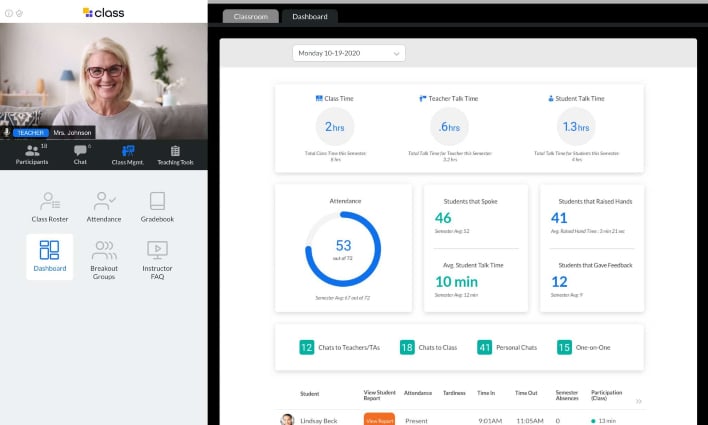Intel Sparks AI Ethics Uproar Over Tech That Deciphers Student Body Language
Since the beginning of the pandemic a couple of years ago, many students have made the transition from traditional onsite classes to online classes. While being able to take classes in a remote environment has its advantages, it can also present unique challenges for both students and teachers. One of the challenges teachers can incur is being able to detect how a student is responding to the material being taught. That is where Intel hopes to give some insight, and where some say the tech company is perhaps crossing some ethical lines.
The AI software is designed to detect if a student is bored, distracted, or confused by analyzing the student's facial expressions and incorporating how they are interacting with the educational content being presented. The idea is to give teachers additional insights into how the students are interacting and engaging.
Michael Chasen, co-founder and CEO of Classroom Technologies, stated, "We can give the teacher additional insights to allow them to better communicate."
The analytics technology from Intel is designed to capture images of students' faces with a webcam and computer vision technology, and then combine it with contextual information about what the student is working on at that moment in order to assess a student's ability to understand. This, however, requires a student to have a camera on in order to detect facial expressions, and this is a point of contention for some.

"Students have different ways of presenting what's going on inside of them," argues Todd Richmond, Director of the Tech and Narrative Lab and professor at the Pardee RAND Graduate School. "That student being distracted at that moment in time may be the appropriate and necessary state for them in that moment in their life."
Another cause for concern for some is when it comes to students needing to have a camera on in general. There may be instances where a student is not comfortable sharing where they live for various reasons. This in and of itself could cause the student unneeded stress and lead to other problems. There could also be problematic for students who use a mobile hotspot to attend online classes. The additional bandwidth usage could cost them extra money they do not have.
As of right now, the AI technology is in the testing phase and Intel says it will be looking at ways of ensuring it does not encroach on anyone's privacy or cause ethical issues.
Update 4/21/2022 6:32 PM: Intel reached out to HotHardware and provided the following statement with respect to our coverage of this story...
"At Intel, we believe AI can help drive beneficial advancements in medicine, industry and society, and empower us with the right tools and enable a responsible, inclusive and sustainable future. Intel’s adaptive learning research is rooted in social science and our multi-disciplinary research team works with students, teachers, parents and other stakeholders in education to explore how human-AI collaboration in education can help support individual learners’ needs, provide more personalized experiences and improve learning outcomes.
As with all research projects, Intel and its collaborators abide by strict data privacy policies and adhere to ongoing oversight."
Top Image Courtesy of Classroom Technologies


